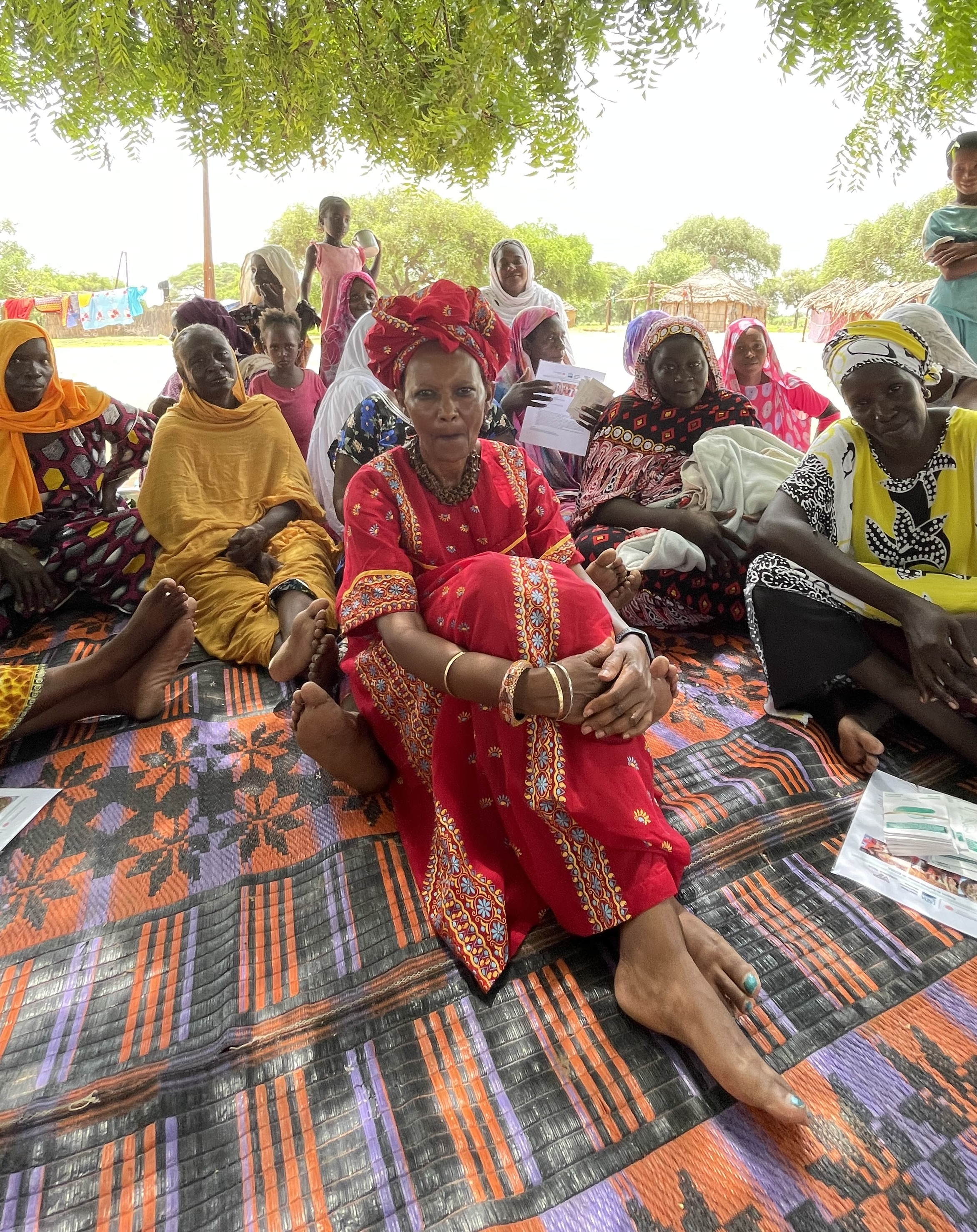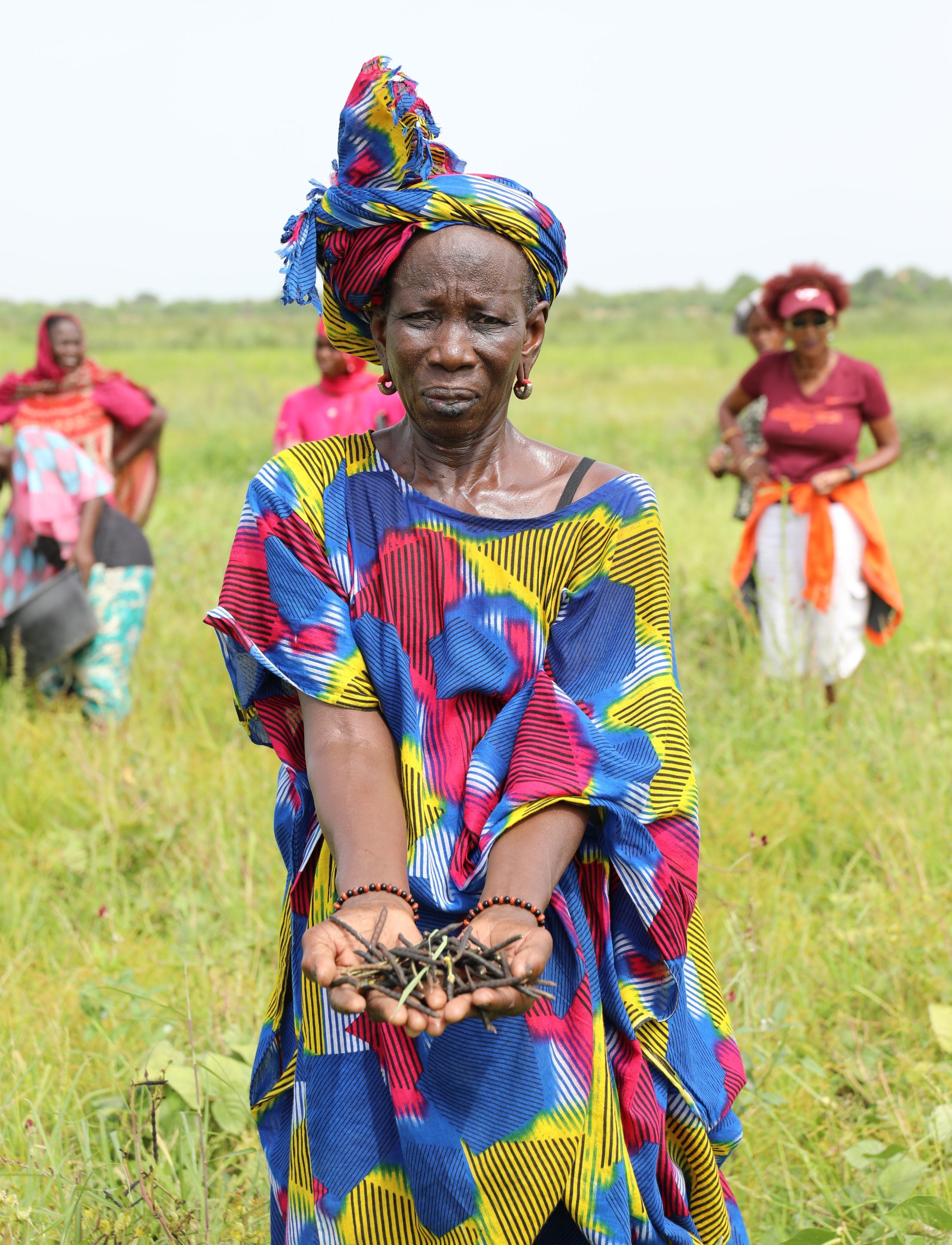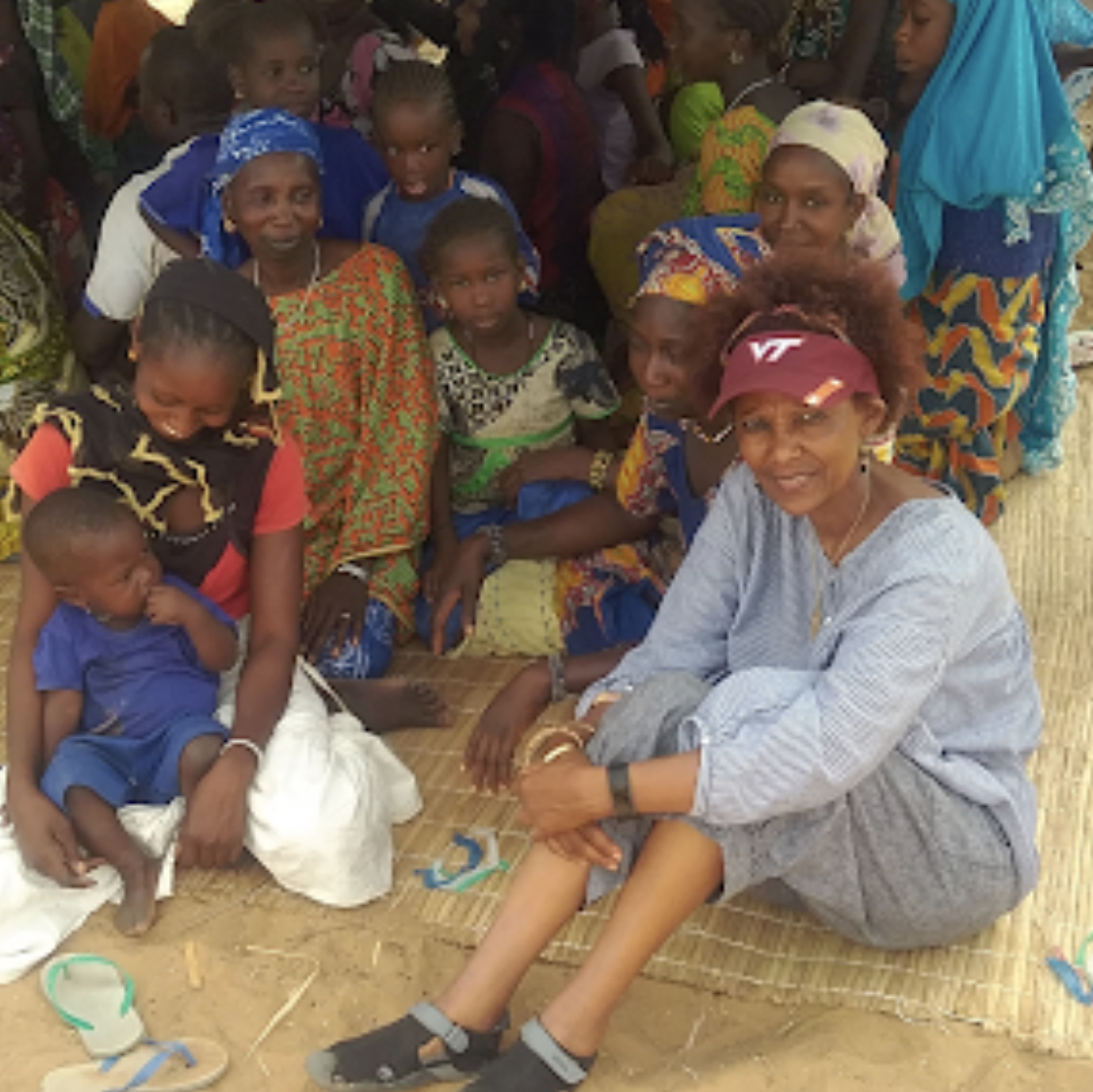
Earlier this summer, I had the pleasure of visiting the Global Food Institute, where I met someone whose work instantly resonated with the mission of the Dr. Yum Project—Dr. Ozzie Abaye, an agronomist and award-winning professor at the School of Plant and Environmental Sciences at Virginia Tech. Her story is inspiring, global, and deeply rooted. Originally from Ethiopia, she traveled to my own state of Pennsylvania for an exchange year while in high school and eventually earned her PhD in agronomy. Today, she leads international efforts to improve food systems through sustainable agriculture. Over Zoom, we talked more about her projects while she was in Senegal last month.
What struck me most about Dr. Abaye’s work was her emphasis on nutrition through food production, specifically her focus on mung beans. In her work with VA Tech and Counterpart International, she collaborates with communities to diversify food systems in West African countries like Senegal by introducing this versatile, quick-growing legume. In their work, she trains farmers and feeds communities, including mothers and children. But she doesn’t stop at producing mung beans. She and her students in Virginia regularly develop simple, culturally appropriate recipes that help families turn crops into nourishing meals.
Sharing the How
That last piece, "how to eat it," felt like such a strong parallel to our work at the Dr. Yum Project. Like Dr. Abaye, we believe that recipes are powerful tools for improving health. Whether we’re helping families navigate picky eating or introducing new flavors in our cooking curriculum, we’re always thinking about how to make healthy food practical, joyful, and relevant.

Dr. Abaye generously shared some of the innovative ways she introduces mung beans to families—like savory curries, fresh salads, and flatbreads using local ingredients. However, one recipe in particular stood out: a Mung Bean Mango Salad. This preparation of mung beans is refreshing, hearty, and absolutely delicious. I tried it myself and couldn’t wait to share it with our community. You’ll now find this recipe in our Dr. Yum Recipes, a new addition we hope families will love.
In our conversation, Dr. Abaye also introduced me to a new initiative she’s involved in called Our Food Forest, which integrates food crops into woodland spaces. Her students are developing vegetable profiles and training booklets for “champion gardeners,” helping to expand food access and education in creative ways. The synergy with our own work was unmistakable, from the way we both use storytelling in food education to our shared belief that teaching people how to eat is just as important as what they grow or buy.
Bringing Kids into the Conversation

We also talked about cultural influences on children’s eating habits—how local ingredients and traditions shape what’s familiar and delicious for a child. I loved her story about a toddler who accompanied his mother to a cooking class and unexpectedly devoured a mango salad—proof that when the right flavors meet the right moment, kids can surprise us with their curiosity about new foods.
As we seek new ways to provide diverse, nourishing, and developmentally informed food education to families, I’m excited about future collaborations with Dr. Abaye and her students. I see so much potential for cross-pollination between our projects, sharing resources, developing global recipes, and maybe even testing some new recipes together with our “yum score,” a tool she believes may help her college students to try new foods!
Stay tuned for more to come. And in the meantime, try the Mango Mung Bean Salad—you might just find a new favorite snack that connects you to families around the world.
